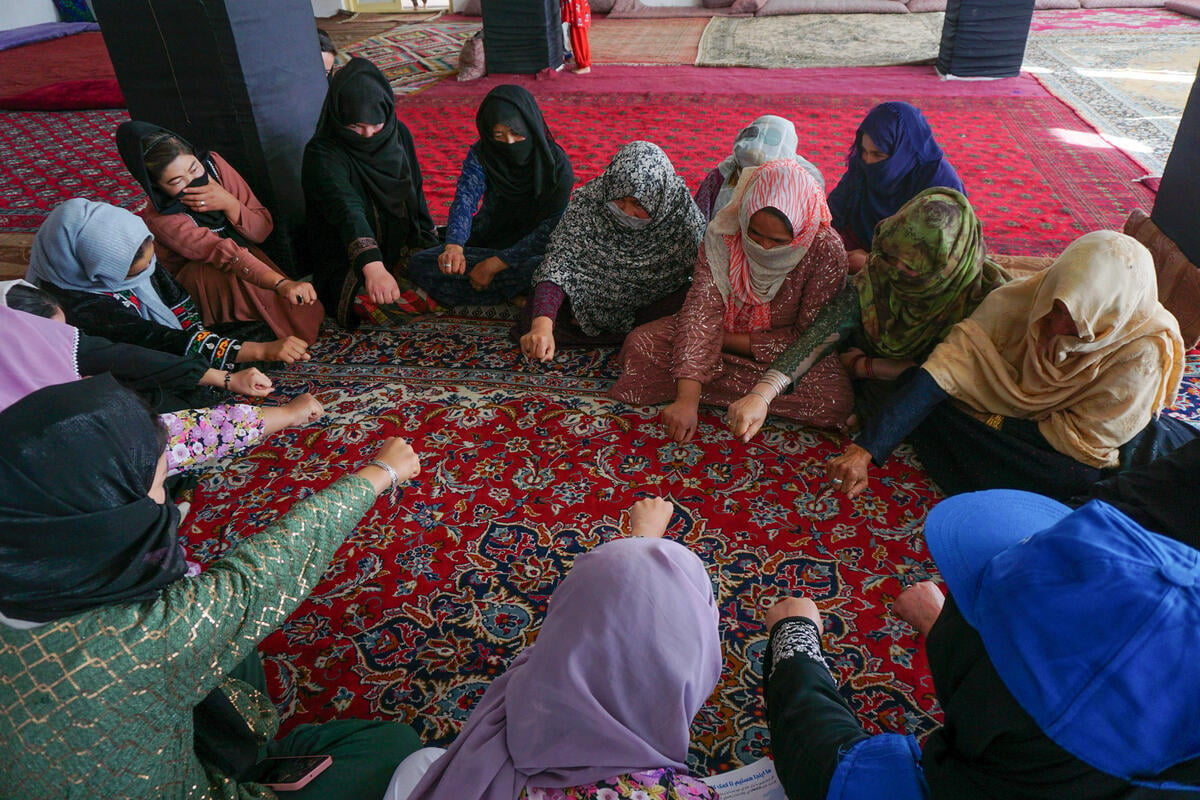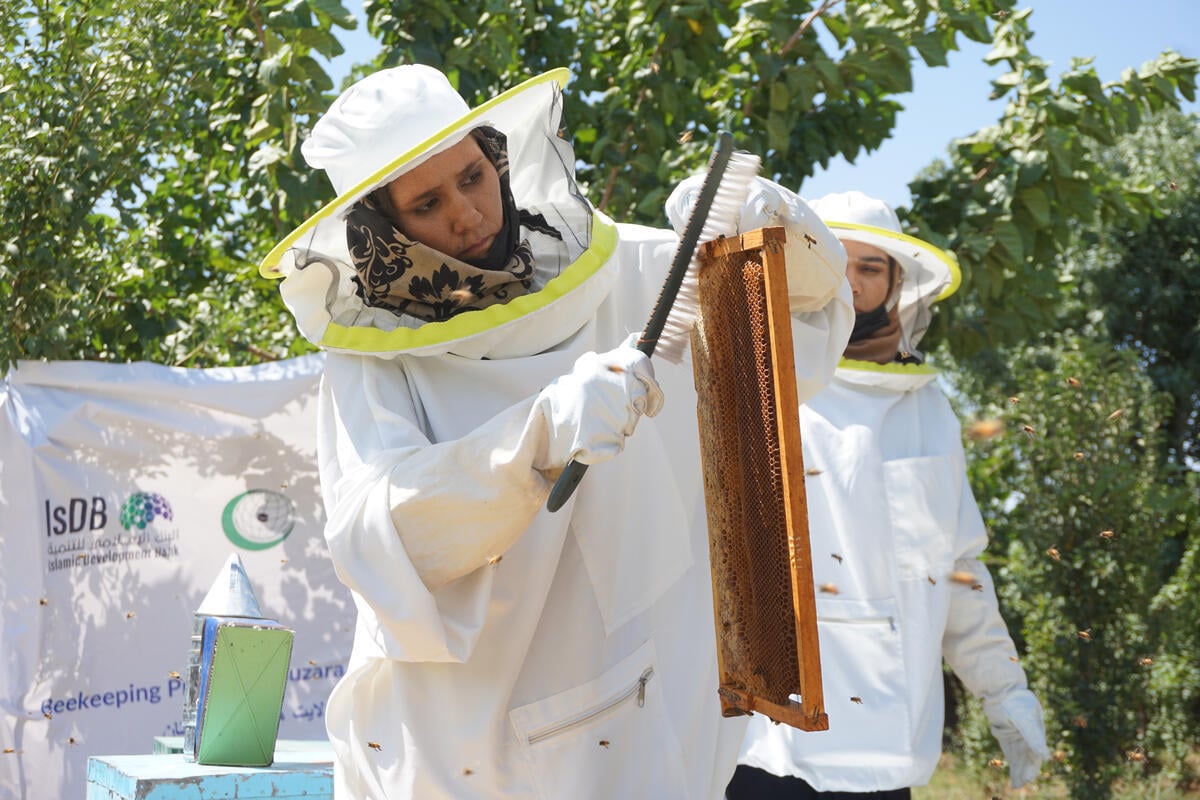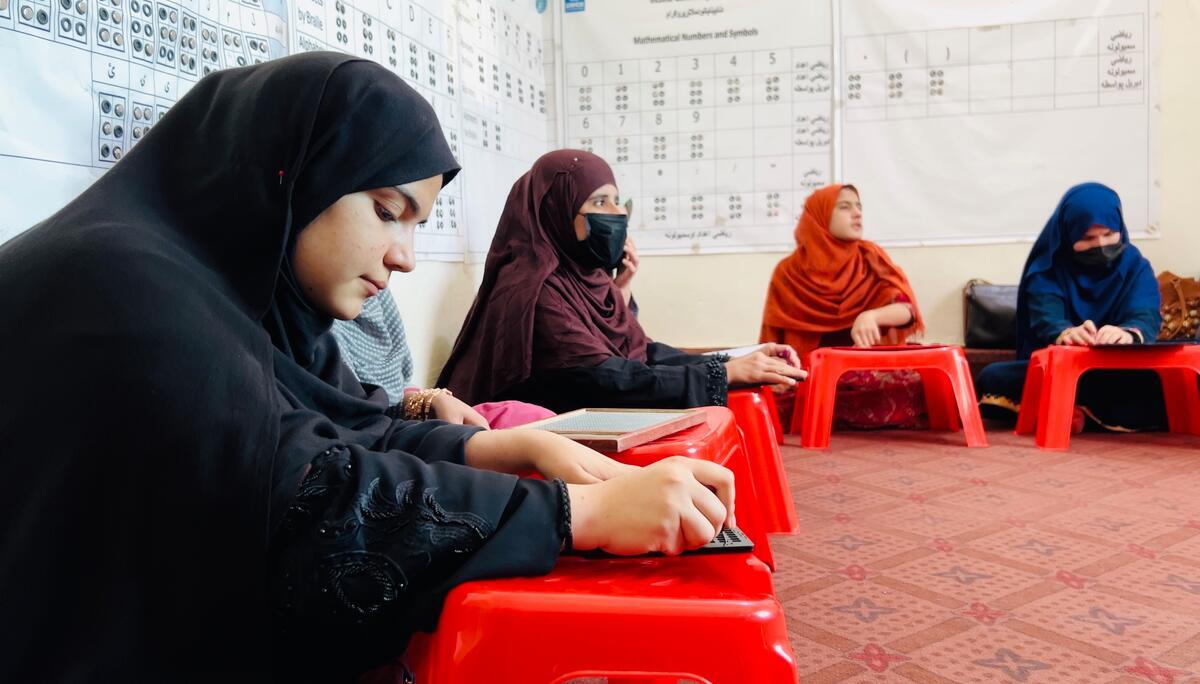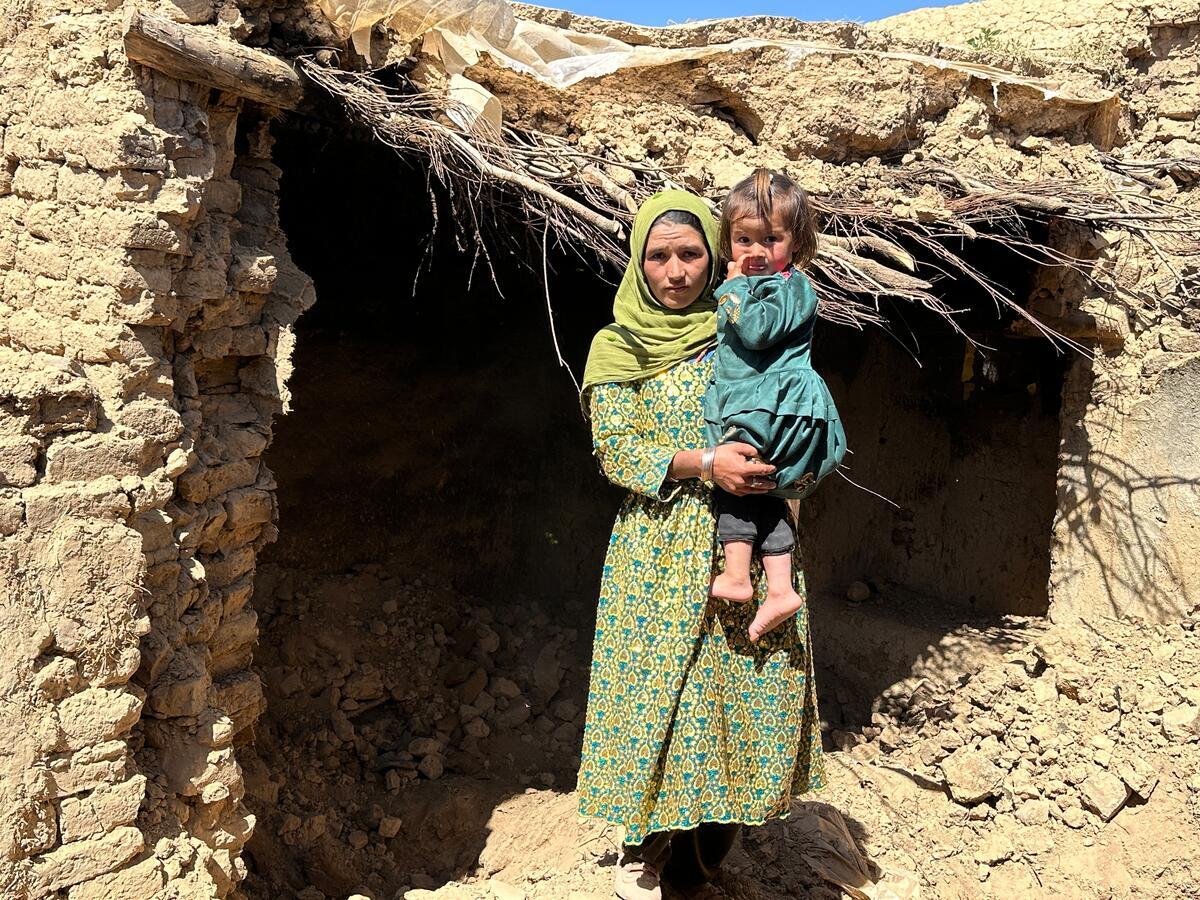Supporting vulnerable Afghans in Balochistan's refugee villages
Supporting vulnerable Afghans in Balochistan's refugee villages

SURKHAB, Pakistan, November 22 (UNHCR) - "Fazal now responds to our voices with his facial expressions; a smile when he likes something and a frown if he dislikes something," said Badrjamal excitedly about her five-year-old son to a visiting UNHCR team in Surkhab refugee village.
While other boys his age may be scaling trees or writing their first words, Fazal Muhammad has to struggle just to make his face twitch. He is suffering from hydrocephalus, an inborn neurological disorder that causes accumulation of excessive water in the brain. If not diagnosed early, it results in the abnormal enlargement of the head and irregular brain functions.
Fazal's case was brought to UNHCR's attention by an official of the basic health unit of Surkhab refugee village in south-western Pakistan's Balochistan province. He immediately came under the agency's extremely vulnerable individuals project, which seeks to improve their access to basic services like health care, education and skills development.
"Fazal's condition was critical when we first visited him," said Ruby Rehman, UNHCR's community services assistant in provincial capital, Quetta. "His head was abnormally large and heavy, which made his care [feeding, cleaning] difficult for his mother."
Lying on a small bedstead in a dark mud-built room, Fazal was trying to recognize the strange faces of other refugee children who had gathered at his house during the visit of the UNHCR team. Every corner of the house, with no furniture and thin floor matting, spoke of the family's poverty. The refugee family could not afford expensive treatment for Fazal; doctors said the lack of such care aggravated his condition.
UNHCR's community services unit immediately referred his case to one of the best neurosurgeons at the Combined Military Hospital in Quetta in May. According to Fazal's medical reports, his brain had been severely damaged.
In June, he underwent surgery. UNHCR provided some 40,000 rupees (US$664) to cover all expenses, including the transportation costs for his family from the refugee village to the city.
"He was getting older and heavier and it was difficult for me to carry him for cleaning and washing," said Badrjamal. "Without support from UNHCR, we would not have been able to bear the expenses of the surgery because we hardly meet our daily needs."
Fazal can now move his hands and head, but he cannot sit without any support. The surgery would help prevent further enlargement of his head, however, it will not help him live like a normal child. At present, it is only the lower part of his brain that helps his heart and lungs work.
"We have done our best to help the child, but for further improvement, advanced medical tests and modernized medical treatment are required, which are neither available in Pakistan nor affordable," noted Rehman.
The family's suffering does not end here. They are facing criticism from the community. "They say we were begging on the streets of Quetta to collect money for our child's treatment," said Badrjamal with wet eyes and a heavy heart. "This hurts me, we did not even know how UNHCR came to know about our child. It was like a divine help that arrived somewhere from the heavens, God's reply to my silent prayers."
In a close-knit and conservative society like the Afghans', external help is often viewed with suspicion. Waseela, a teenaged girl in Surkhab refugee village, is also receiving support to treat her schizophrenia through a special budget allocated through UNHCR's partner, the American Refugee Committee.
Waseela's family lives in an isolated corner of the village completely cut off from the community. Even then, they face constant criticism for accepting "outside" help.
To discuss such challenges and devise culturally-sensitive strategies, UNHCR's community services unit held a roundtable discussion earlier this year. It identified four groups of extremely vulnerable Afghans in Balochistan who need attention - the physically and mentally disabled, the mentally ill, the chronically ill and women at risk - and sought to enhance their access to basic services like health, education, shelter, water, sanitation and skills development activities.
By Duniya Aslam Khan in Surkhab, Pakistan








